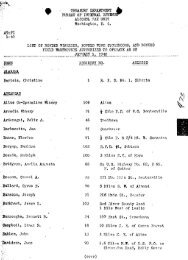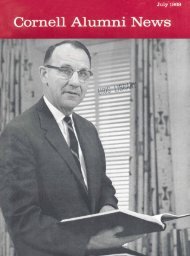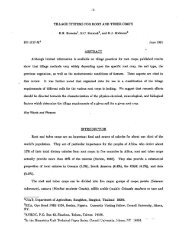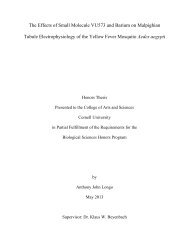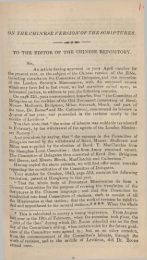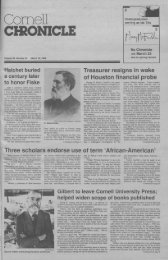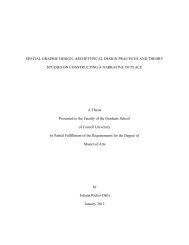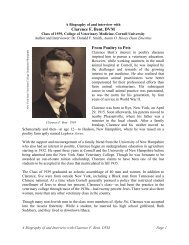archaeological and textual records - eCommons@Cornell - Cornell ...
archaeological and textual records - eCommons@Cornell - Cornell ...
archaeological and textual records - eCommons@Cornell - Cornell ...
You also want an ePaper? Increase the reach of your titles
YUMPU automatically turns print PDFs into web optimized ePapers that Google loves.
Christians comprised “perhaps twenty percent of the Iroquois population of<br />
approximately 8,600” (Richter 1985:8), <strong>and</strong> that “among individual nations of the<br />
confederacy, about the same percentage applies to Oneidas, Onondagas, <strong>and</strong> Senecas,<br />
with something less than twenty percent of Cayugas <strong>and</strong> well over twenty percent of<br />
Mohawks” (Richter 1985:8) cannot be supported.<br />
However, Christians or no Christians, the influence of the Huron <strong>and</strong> other<br />
groups who lived on Seneca territory also seems to be an area in need of further<br />
research. Besides improving our underst<strong>and</strong>ing of how Christianity may have been<br />
spread by these “third parties,” learning more about the lives <strong>and</strong> status of such<br />
villagers may additionally help us grasp the mechanisms behind the often<br />
misunderstood Iroquoian notions of “adoption,” “slavery,” <strong>and</strong> the “mourning-war<br />
complex” (Richter 1992:32-38; Lynch 1985). The word “slavery” as it has been used<br />
by other scholars (Starna <strong>and</strong> Watkins 1991) is particularly problematic in the study of<br />
Iroquoia owing to the word’s overt economic connotations <strong>and</strong> the variability of<br />
prisoner treatment that the historical sources express.<br />
Politics aside, when focusing on strictly religious matters we are left at<br />
something of an impasse. History has shown varying degrees of religious syncretism,<br />
as well as compartmentalization. On the more extreme side, Romans adopted the<br />
Greek gods entirely <strong>and</strong> just changed the names; conversely, many “Creole” traditions<br />
that arose in the Americas appropriate various elements of West African, Caribbean<br />
<strong>and</strong> Catholic spirituality. Nevertheless, even with an <strong>archaeological</strong> record of<br />
Christian-themed items <strong>and</strong> a historical record that relays several decades of<br />
missionary activity, syncretism is a problematic idea to employ in the Seneca case. For<br />
106



